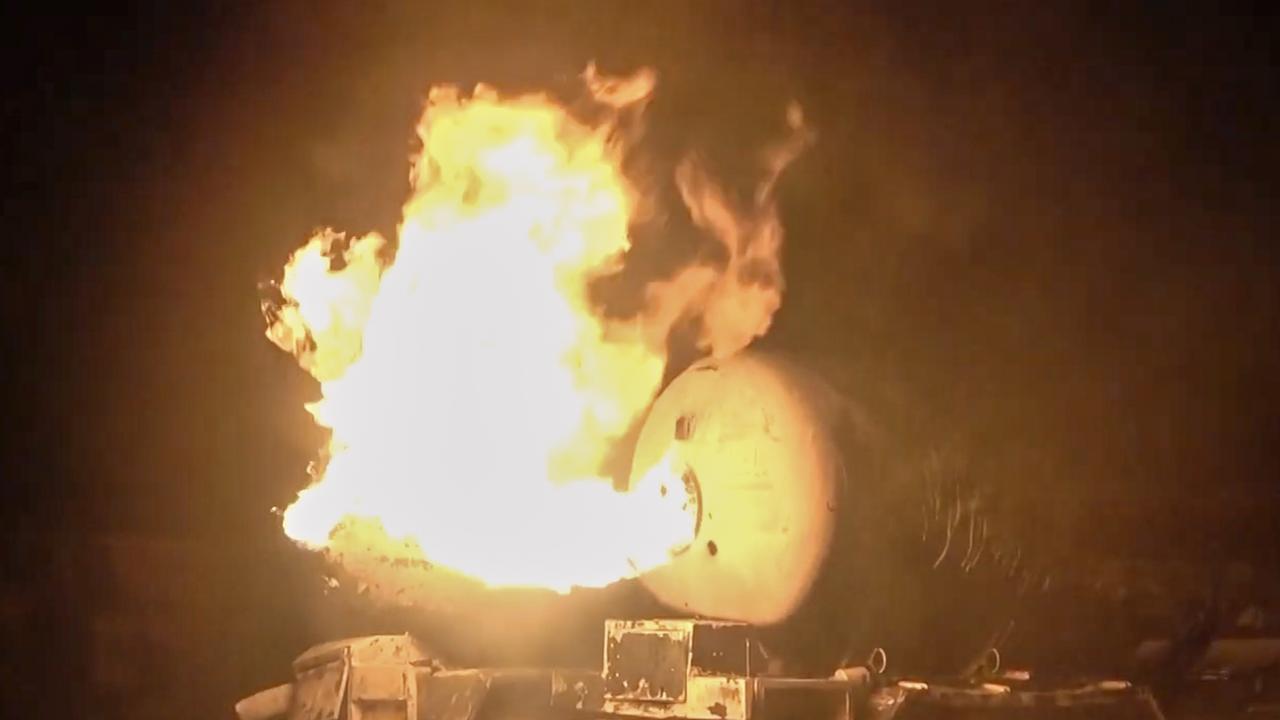Donald Trump blocked Israel’s plan to strike Iranian nuke site, according to insiders
Donald Trump sensationally blocked Israel’s plan to strike Iranian nuclear sites, insiders claim, as the US moves to avoid a broader regional conflict.
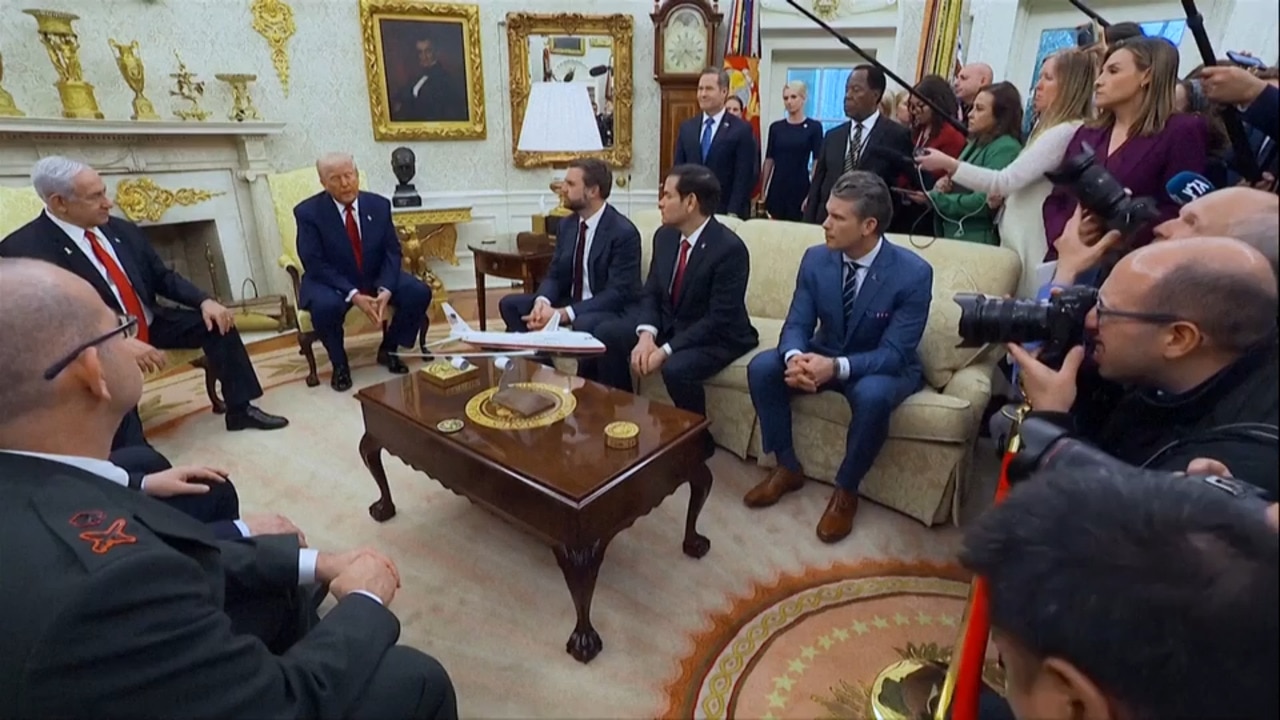
Middle East
Don't miss out on the headlines from Middle East. Followed categories will be added to My News.
Israel was preparing to strike Iranian nuclear sites as early as next month, but US President Donald Trump recently halted the plan, opting instead to pursue a diplomatic deal with Tehran to curb its nuclear program, according to US officials and others briefed on the talks.
Mr Trump’s decision followed months of internal debate over whether to back Israel’s military option or prioritise negotiations — at a time when Iran is seen as weakened both militarily and economically, according to The New York Times.
The internal debate exposed divisions between traditionally hawkish US cabinet members and advisers who questioned whether a strike on Iran could truly halt its nuclear ambitions without sparking a wider war.
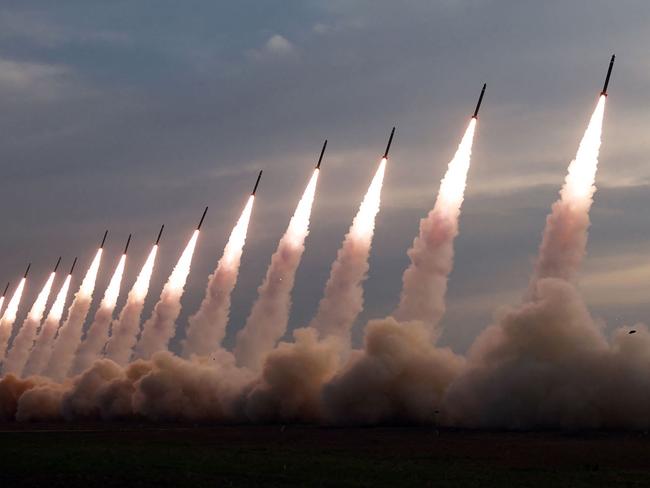
Ultimately, officials reached a tentative consensus to hold off on military action, especially as Iran signalled openness to renewed negotiations.
Israeli officials had drawn up detailed plans to strike Iran’s nuclear sites in May and were prepared to act — at times hopeful the US would give its approval.
The aim, according to sources familiar with the plans who spoke with The New York Times, was to delay Iran’s nuclear program by at least a year.
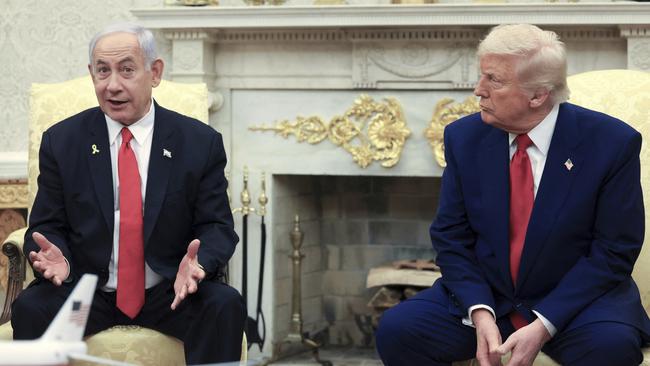
Most of the Israeli strike plans relied heavily on US support — both to help defend against likely Iranian retaliation and to ensure the operation’s success, effectively making the US a key participant.
For now, President Trump has opted for diplomacy over military action.
While he scrapped the Obama-era Iran nuclear deal in his first term, his second term has seen a shift: wary of another Middle East conflict, he has opened talks with Tehran, giving it just a few months to reach a new nuclear agreement.
WHAT IS HAPPENING?
The US and Iran held talks on April 12, hosted by Oman, with a second round scheduled in one week.
Iran’s nuclear ambitions have long worried western nations and some of its regional neighbours, particularly Israel.
The Islamic Republic currently has a small nuclear energy program, but it is Tehran’s growing capacity to develop its own nuclear weapons that has the USA concerned.
In 2015, when Barack Obama was in the White House, the US and Iran signed the JCPOA [Joint Comprehensive Plan of Action] which limited the Iranian nuclear program in return for sanctions relief.
That agreement was also signed by the UK, France, Germany, China and Russia.
In accordance with the agreement, Iran’s nuclear activities are limited and there are “regular investigators” visiting the republic’s nuclear sites to ensure Tehran is not developing a nuclear bomb.
The deal is set to expire in October – 10 years after it was signed.
WHY ARE THE TALKS SO IMPORTANT?
Earlier this month, Mr Trump informed Israel of his decision that the United States would not support an attack.
He discussed it with Prime Minister Benjamin Netanyahu when Mr Netanyahu visited Washington last week, using an Oval Office meeting to announce that the United States was beginning talks with Iran.
Mr Trump had said that if a deal was not made, Iran would be in “great danger”.
Mr Netanyahu said Israel and the US were “both united in the goal that Iran does not ever get nuclear weapons”.
Dr Alam Saleh, a senior lecturer in the Australian National University’s School of Politics and International Relations (Iran and The Middle East), described Iran as a “threshold nuclear state … meaning [it] is very close to making (a nuclear bomb)”.
“If all parties are happy with Iran, the sanctions will be removed forever,” Dr Saleh said.
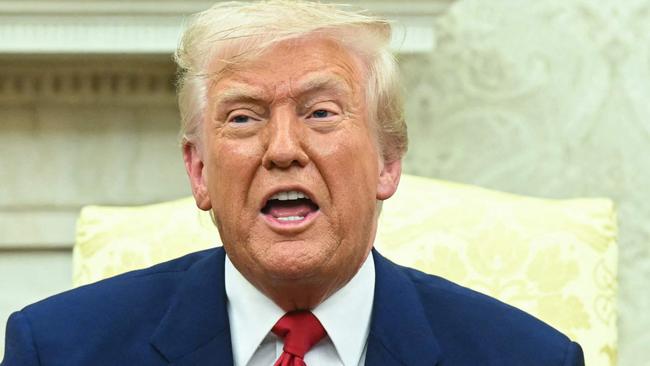
WHY DOES THE US WANT IRAN TO GIVE UP ITS NUKE PROGRAM?
“Historically, the United States has been in charge of the balance of power in the Middle East for many decades,” Dr Saley said. “With Iran becoming a nuclear power, such balance of power will change forever. Therefore, the United States does not want a nuclear power with a powerful ideological background to be a nuclear power in the Middle East. Most of the energy security depends on the Middle East’s oil and gas. It’s very strategically located. It’s very close to Europe.”
WHAT COULD HAPPEN IF IRAN DOES NOT COMPLY?
The US is using “coercive diplomacy” on Iran, Dr Saleh said.
“That means using coercive threats as well as suggesting diplomacy. If Iran doesn’t comply, then the only alternative option is to use force,” he said.
Mr Trump suggested as much in a recent letter to Iran’s supreme leader, the Ayatollah Khomanei.
“I’ve written them a letter saying, ‘I hope you’re going to negotiate because if we have to go in militarily, it’s going to be a terrible thing,’” Mr Trump told reporters last week.
WHY DOES IRAN WANT TO NEGOTIATE WITH THE US?
In an op-ed published by the Washington Post this week, Iran’s Foreign Minister Seyed Abbas Araghchi, said his country was ready to “seal a deal” and “open a window toward diplomacy.”
“The ball is now in America’s court. If it seeks a genuine diplomatic resolution, we have already shown the way,” Mr Araghchi wrote.
A priority for Iran is lifting the sanctions that have plummeted the value of the rial, led to high unemployment and inflation. As a result, most of the country is impoverished.
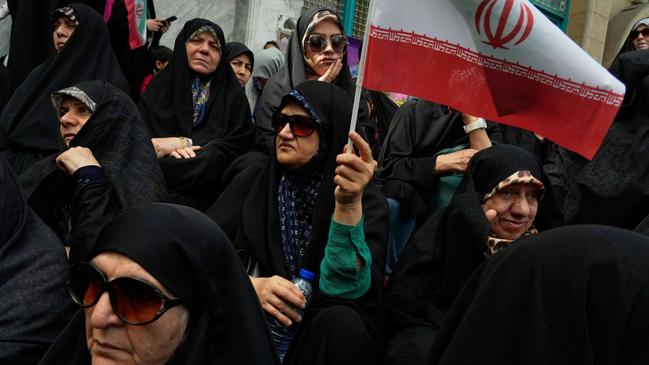
DO BOTH SIDES AGREE ON THE TERMS OF THE TALKS?
The US is saying these talks on Saturday are “direct negations” but Iran is saying they are “indirect”.
“Direct means both Iranian diplomats and the American diplomats sit in one room, face-to-face and discuss their needs and their requirements,” Dr Saleh said.
Indirect simply means they might be staying in two different hotels, and there will be a mediator in this case that will be diplomats from Oman to kind of exchange messages between the two sides at the same time in the same place.”
WHAT IS IRAN’S NUCLEAR HISTORY?
While Iran’s nuclear program started in 1957, concern about their activities ramped up in the 1990s, when Tehran “started clandestine activities to enhance … their capability to enrich uranium,” Dr Saleh said.
In 2002, western intelligence officers realised Iran was secretly attempting to enhance their nuclear technology.
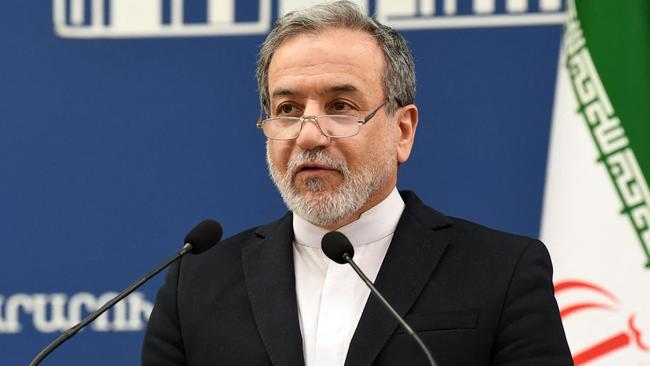
WHY DOES ISRAEL NOT WANT IRAN TO HAVE A NUKE PROGRAM?
Israel has its own nuclear weapons but views Iran as an threat.
Last year, Israel reportedly hit an Iranian nuclear site in retaliation for a missile attack.
The tensions between Iran and Israel have escalated since the October 7, 2023 attacks.
Iran is allied with the Palestinian militant group Hamas and the Lebanese militant group Hezbollah.
Dr Saleh described Israel as “very vulnerable in terms of security”.
“It’s very close to Iran. It’s surrounded by its enemies, mainly supported by Iran, and as a result, a nuclear Iran would be an existential threat to Israel.”
WHAT ARE THE ISSUES BETWEEN IRAN AND THE US?
“One of the main issues with Iran and the United States is that they don’t trust each other, and both sides have good reasons not to trust each other,” Dr Saleh said.
“Historically, they have a very complicated relationship since the early 1950s. What they need to do at this stage is to build up a trust.”
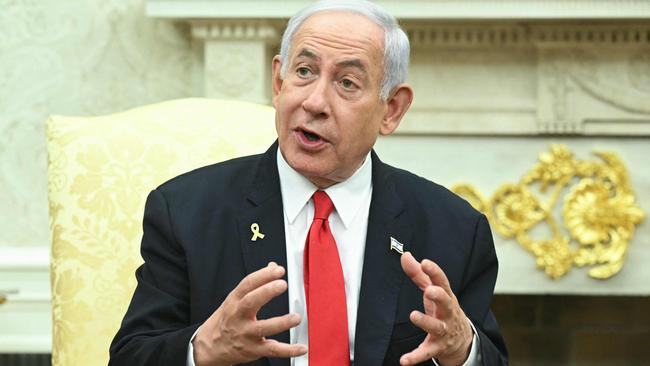
Mr Araghchi said in order to move forward, both countries needed to agree that there can be no “military option” nor a “military solution”.
“Mark my words: Iran prefers diplomacy, but it knows how to defend itself,” Mr Araghchi wrote.
Experts note how important it is for the US and Iran to reach a deal.
“They need to consider each other’s concerns, worries and priorities in order to achieve a rational kind of result that would be good for both and would be good for the region”, Dr Saleh said.
“Any kind of war in the region will be a catastrophic war.”
– with AFP
More Coverage
Originally published as Donald Trump blocked Israel’s plan to strike Iranian nuke site, according to insiders



